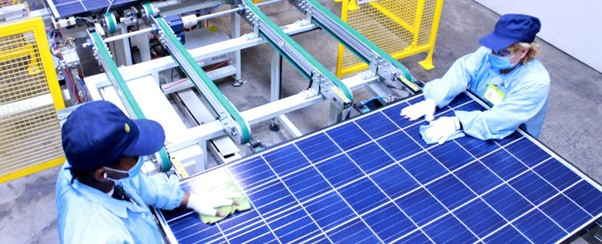What are the Steps Involved in Making Solar Panels?
What are the Steps Involved in Making Solar Panels?
Solar energy has gained significant traction in recent years as a clean, sustainable, and renewable energy source, with solar panels being pivotal in harnessing this energy. These panels, utilizing photovoltaic cells to convert sunlight into power, represent a marvel of modern engineering. The manufacturing process of solar panels is intricate and involves several steps, with a focus on material selection, silicon ingot production, solar cell fabrication, assembly, encapsulation, and quality testing. In this blog, we'll delve into each step, highlighting the role of solar frame manufacturers and the significance of solar shade suppliers in UAE.
Initial Stage: Material Selection and Preparation
The process begins with meticulous selection and preparation of materials, primarily silicon in the form of polycrystalline or monocrystalline cells. These raw materials undergo thorough cleaning and preparation to ensure a pristine starting point for manufacturing.
Silicon Ingot Production
Pure silicon is melted and formed into large cylindrical ingots, which are then precisely sawed into ultra-thin wafers. These wafers serve as the foundation for individual solar cells.
Solar Cell Fabrication
Solar cells are constructed on these silicon wafers through several steps, including doping with specific elements to create a semiconductor. Front and rear contacts are attached to efficiently collect and convey electrical current, along with anti-reflective coatings to enhance light absorption.
Solar Panel Assembly
Solar cells are assembled into panels, with solar frame manufacturers playing a crucial role in providing structural support and protection. The interconnected cells are soldered to ensure proper electrical conductivity.
Encapsulation and Backsheet Application
Solar panels are encapsulated to shield cells from environmental hazards using materials like ethylene-vinyl acetate. A backsheet is applied for increased insulation and weather resistance.
Quality Testing
Each panel undergoes rigorous quality testing to assess flaws, effectiveness, and overall performance, ensuring only high-quality panels reach the market.
Packaging and Distribution
After passing quality checks, panels are carefully packaged to prevent damage during distribution. Solar shade suppliers in the UAE contribute by providing shading solutions to enhance panel efficiency in hot climates.
Conclusion
The process of manufacturing solar panels involves meticulous steps and collaboration between various stakeholders. Solar frame manufacturers provide structural support, while solar shade suppliers play a role in optimizing panel efficiency. As solar energy continues to drive the shift towards a sustainable future, the manufacturing of efficient solar panels plays a crucial role in harnessing the power of the sun.

Comments
Post a Comment